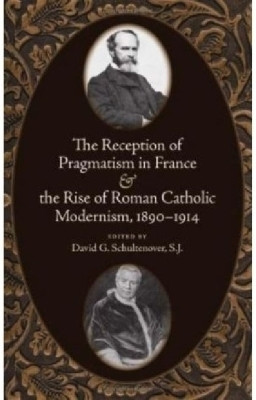The Reception of Pragmatism in France and the Rise of Roman Catholic Modernism, 1890-1914(English, Hardcover, unknown)
Quick Overview
Product Price Comparison
This collection of essays provides a small revolution in the study of Roman Catholic Modernism, a movement that until now has been largely seen as an episode that underscored institutional Catholicism's isolation from the mainstream intellectual currents of the time. By recasting the provincial story within a transatlantic intellectual-cultural framework - that is, the French Catholic Modernists' reception of the pragmatism of William James, the towering giant of American intellectual life - the present volume turns a confessional 'Catholic' episode into a broadly 'catholic' one. It explains precisely why Modernism was a rather universal phenomenon, finding expression in non-Christian religions, Russian Orthodoxy, and mainline Protestant denominations as well as in Roman Catholicism. According to the old provincial narrative crafted by Catholic conservative forces, Modernism was simply a recurrence of ancient heresies rekindled by the Enlightenment. Conservatives dug in their heels against Enlightenment thought, insisting on the timelessness of dogmas and on the truth of a 'revelation' independent of human distortion. Against this official position arose a 'fringe element' of Catholic scholars who applied historical-critical methods to the study of Scripture, church history, and dogma. Pius X condemned these Modernists and largely swept the Church clean of their influence. This volume brings together distinguished church historians, philosophers, and theologians to examine the reception of William James' pragmatism by Roman Catholic thinkers in France. They show that the Modernist Crisis was not 'a strictly circumscribed affair' but rather a wrenching subplot within a larger intellectual and cultural drama that puts the particular ecclesiastical crisis firmly in the center of the pressing issues of the day. The book concludes that Roman Catholic concerns were catholic concerns - perennial concerns shared with the major intellectual currents of that era. In addition to David G. Schultenover, S.J., the contributors are: Clara Ginther, Harvey Hill, Michael J. Kerlin, John R. Shook, Stephen Schloesser, S.J., C. J. T. Talar, Donald Wayne Viney, and Frederic Worms.


